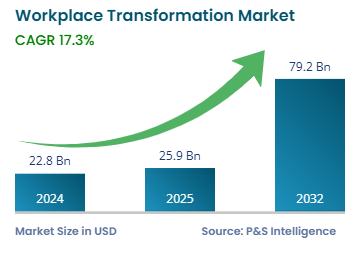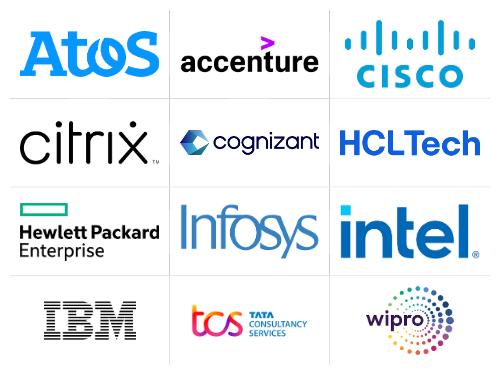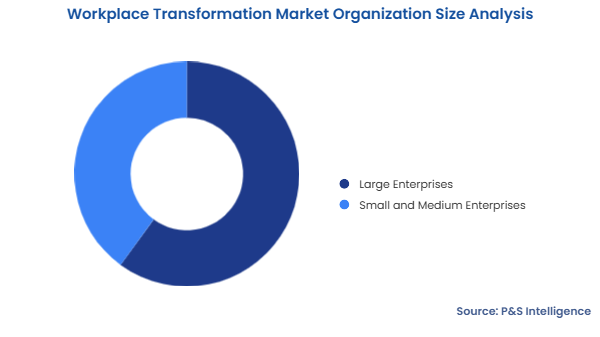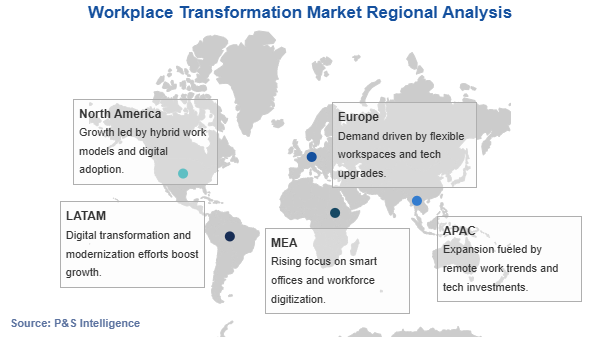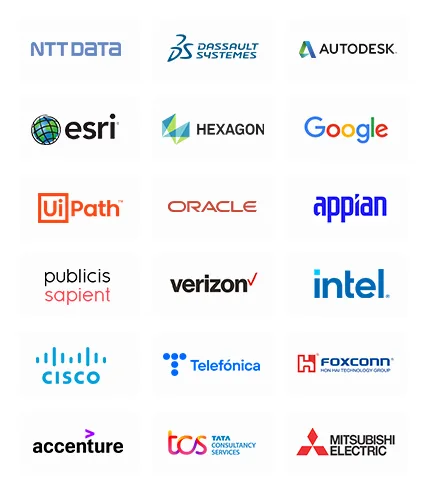Workplace Transformation Market Overview
The workplace transformation market size stood at USD 22.8 billion in 2024, and it is expected to grow at a CAGR of 17.3% during 2025–2032 to reach USD 79.2 billion by 2032.
This is owing to the changing demographics of the workforce and the rising use of mobility services, which increase down workers' productivity and operating costs. Moreover, businesses have shifted to remote working and revamped their systems to bring in a digital place in response to the COVID-19 outbreak to ensure business continuity.
Furthermore, enterprises have discovered new methods for delivering training and facilitating team ties and collaborations with the aid of digital workspaces. Additionally, due to the pandemic, of businesses have committed long-term resources for the hybrid work model, which called for the use of cloud-based solutions to support remote working with secure access. These factors are predicted to propel the market expansion.
In addition, businesses are adopting advanced technologies like corporate mobility and bring your own device (BYOD) policies, which drive market growth. Enterprise mobility allows remote employees to remain connected and share important information from anywhere. These solutions transform workplace structures and business processes, while also reducing operational costs.
Additionally, with the aid of virtual reality (VR), artificial intelligence (AI), and the internet of things (IoT), workspaces will deploy more cloud-based and flexibility-enhancing accessible solutions. These technological developments have given market players new chances to diversify their workforce management offerings and incorporate cloud functionalities.
Moreover, several big enterprises have adopted cloud computing solutions that are easy to use, contextually aware, and powered by AI and other automation technologies. Additionally, cloud computing makes it easy for organizations to change the size of their IT requirements as needed.
Additionally, cloud computing streamlines group cooperation by enabling staff to access a centralized repository of files with real-time updates, boosting output. By integrating tools, such as instant messaging, file hosting/sharing, and collaboration software, departments can communicate more easily and innovate more. During the projection period, the expansion of the market for workplace transformation would be propelled by these advantages of cloud technology.
